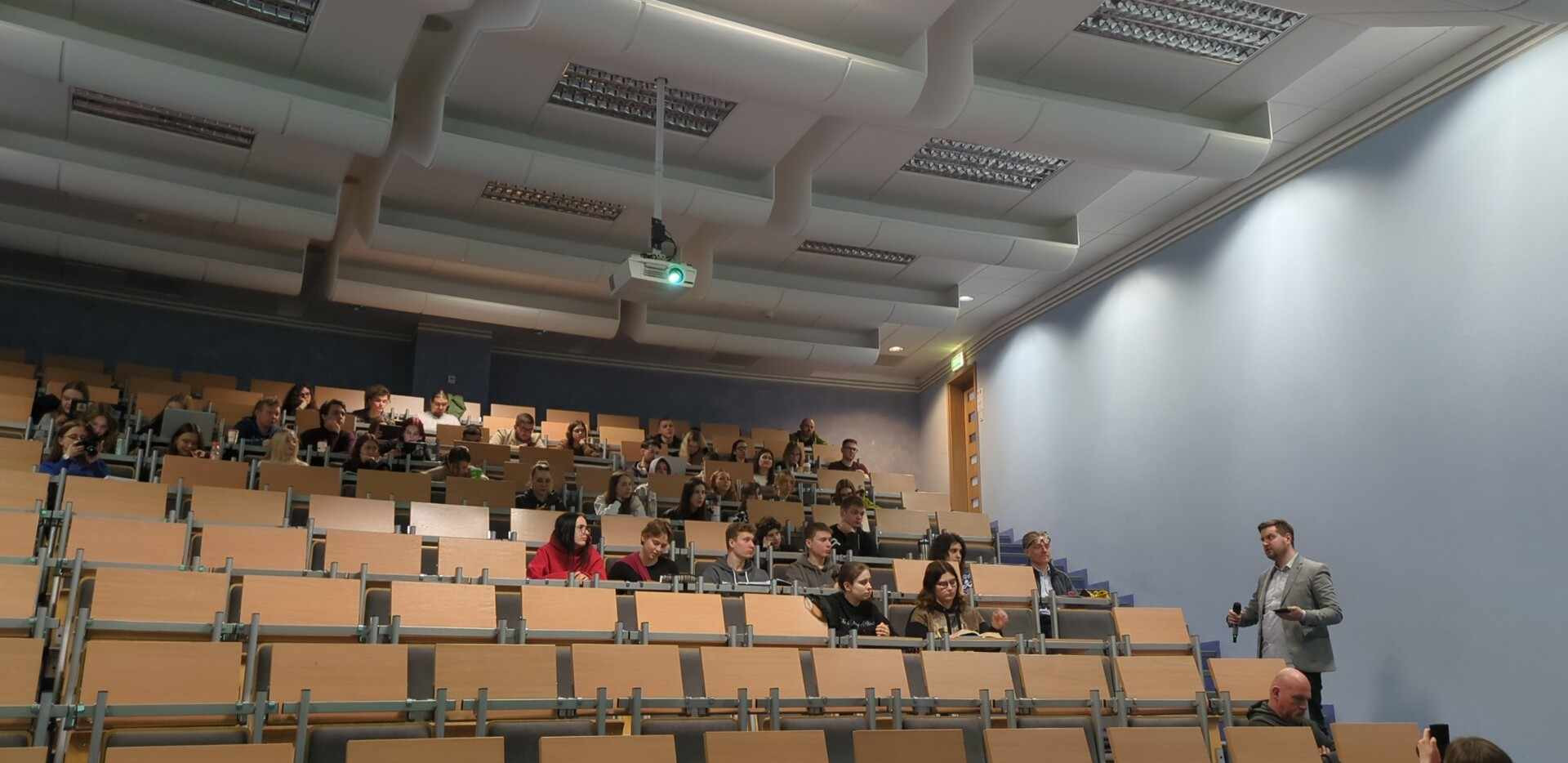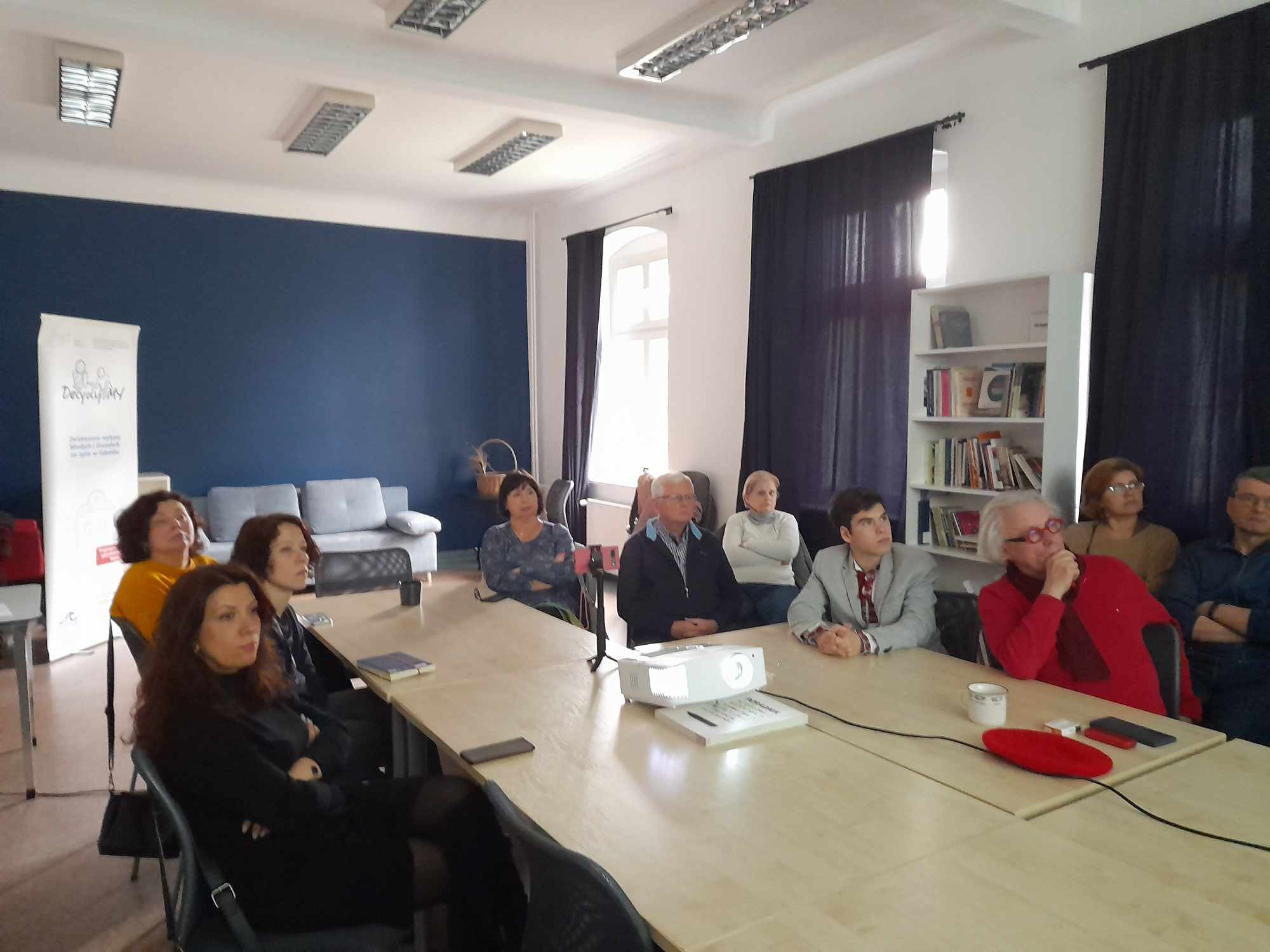
The “Eastern Ukrainian Center for Civic Initiative” in cooperation with the Simon Kuznets Kharkiv National University of Economics presented the book ‘The City Where the War Began’ in Gdańsk, Poland. The events took place at the University of Gdańsk and the Ukrainian Library of the city.
The book describes the occupation of Sloviansk in 2014, after which the Ukrainian government announced the start of an anti-terrorist operation. ‘The City Where the War Began’ tells the reader about the circumstances of the city’s capture and the human rights violations that took place during the occupation such as shelling of residential neighbourhoods, religious discrimination, illegal detentions, torture, extrajudicial executions, mining of civilian infrastructure, restrictions on access to medical care, and the spread of propaganda.
NadiIa Nesterenko, co-author of the book and analyst at the “Eastern Ukrainian Center for Civic Initiative”, spoke about the role of Russian propaganda in the seizure of the city and the methods used in Sloviansk, including creating an information vacuum, faking stories, spreading rumours, and using manipulative language.
“Another aspect of why propaganda had such a great impact is worth noting. There were many different pro-Russian civic organisations, cultural centres, and clubs that had been building trust over the years, and at the right time became one of the influence tools,” she added.
Iryna Ivanova, Professor of the Chair of Social Communication Management at the Simon Kuznets Kharkiv National University of Economicss and a three-time IDP, noted that the example of Sloviansk shows that the propaganda dragon always has three heads: politicians, social media and journalism, and the church. The woman has relocated several times due to Russian aggression and does not want to repeat it in her new home in Gdańsk.
“Such a model of seizure is easy to instil, including in Poland. No one will say they love Russia. They will say that you are unique, that you are cool, that there are enemies around, that the government will not understand you, that the Germans want your resources, the US wants your land, and let’s make an independent people’s republic here,” she believes.
The participants of the presentations were divided over the question whether they felt a threat from Russia. The greatest concern was expressed by students, who referred to the proximity to Kaliningrad and the historical context, since the WWII began in Gdańsk. Some expressed the belief that a takeover was impossible because Poland is not as Russified as Ukraine, is a NATO member, and the Alliance would defend Poland. The latter thought was accepted with scepticism by Ukrainians living in Gdańsk. The discussion was interrupted by an argument about Polish farmers who raised a Russian flag during their protest. The participants drew parallels between the above-mentioned protests and the Russian-controlled protests in Donbas in 2014, where elderly ladies and miners were used. A Polish politician who attended the presentation objected, saying that the situation with the farmers was an internal conflict with no Russian influence.
However, all participants in the discussions agreed that the influence of Russia is felt in the city. Schools teach two foreign languages, and children can choose between German and Russian. They often choose the latter because it is easier to learn and because of the echoes of WWII. There is a Russian House, which regularly holds various celebrations, dances, and film screenings. They also hold history competitions, and the winners are awarded trips to Moscow. The Ukrainian diaspora in Gdańsk is the main source of resistance to pro-Russian influence.

The book ‘The City Where the War Began’ was prepared by the NGO “Eastern Ukrainian Center for Civic Initiative” together with partner organisations (Vostok SOS, Human Rights Centre for Public Research, the “Moloda Prosvita Prykarpattia” NGO, NGO “Public Committee for Protection of Citizen’s Constitutional Rights and Freedoms”, which are members of the Coalition “Justice for Peace in Donbas”), with the support of Kurve Wustrow — Centre for Training and Networking in Nonviolent Action as part of the Civil Peace Service (CPS) programme funded by the Federal Government of Germany.
